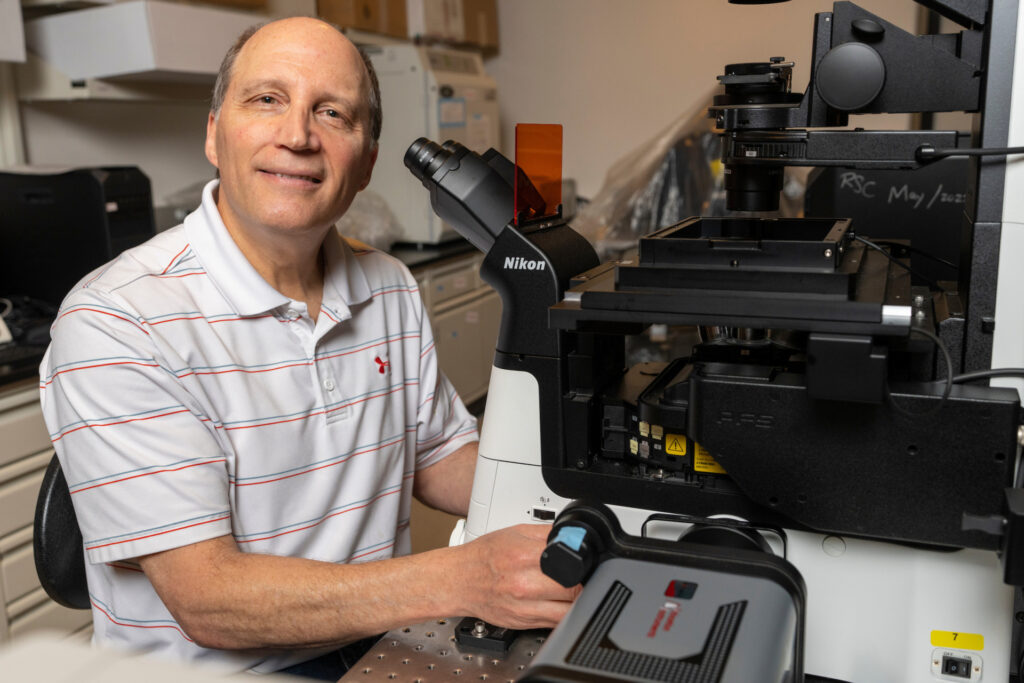Robert Chapkin to receive Mary Swartz Rose Senior Investigator Award
Award recognizes an investigator whose scientific contributions advance the understanding of healthy dietary patterns
Robert Chapkin, Ph.D., Allen Endowed Chair in Nutrition and Chronic Disease Prevention, Department of Nutrition in the Texas A&M College of Agriculture and Life Sciences, has been named the recipient of the Mary Swartz Rose Senior Investigator Award.
The award is presented by the American Society for Nutrition, ASN, and the American Society for Nutrition Foundation, ASFN.

Chapkin, who was selected for his outstanding research on the safety and efficacy of bioactive compounds for human health, will be honored at ASN’s annual flagship meeting, NUTRITION 2023, July 22-25 in Boston.
“It is thrilling to be recognized for the many outstanding contributions to the areas of precision nutrition, stem cell biology, cancer chemoprevention and the development of noninvasive predictive biomarkers,” Chapkin said. “Our achievements, in concert with innovation in basic research, have propelled the Chapkin Lab to securing unprecedented funding from the National Institutes of Health’s National Cancer Institute and the Cancer Prevention and Research Institute of Texas.”
About the award
Named in the honor of the late Mary Swartz Rose, founder and president of what was formerly the American Institute of Nutrition, the award is given to an investigator with 10 years or more of postgraduate training.
The award recognizes an investigator whose scientific contributions advance the understanding of healthy dietary patterns, which includes whole grains, cereals, fruits, vegetables and/or dairy, and it is supported by the Council for Responsible Nutrition. Eligible recipients are conducting mechanistic, epidemiological, clinical and/or translational research contributing to the understanding of the benefits and a healthy dietary pattern.
Awardees are selected for outstanding preclinical and/or clinical research on the safety and efficacy of dietary supplements, as well as essential nutrients and other bioactive food components that may be distributed as supplements or functional food components.
“We continue to be inspired by the achievements of our members,” said Martha Belury, Ph.D., ASN president. “The 2023 ASN award recipients have made outstanding contributions to the field of nutrition research to impact education and practice.”
Working to prevent cancer and chronic inflammatory diseases
The Chapkin Lab focuses on dietary and microbial modulators related to the prevention of cancer and chronic inflammatory diseases. The lab’s central goal is to understand cancer chemoprevention at a fundamental level and test pharmaceutical agents in combination with dietary and microbial modulators to more effectively target biological membranes and improve gut health, thus reducing malignant transformation.
Chapkin was originally appointed as the William W. Allen Endowed Chair in Nutrition and Chronic Disease Prevention in 2017. In 2023, he was reappointed as holder of the chair for a second five-year term.
His research centers on colon cancer prevention by investigating the impact of dietary fat, fiber and gut microbiota status on chronic disease processes.
Award winning researcher and teacher
Among Chapkin’s numerous awards and honors for research and teaching is being named a Fellow of the American Association for the Advancement of Science in 2018 for scientifically and socially distinguished efforts to advance science and its applications.
He is a National Cancer Center R35 Outstanding Investigator Awardee, and he has received the Osborne and Mendel Award from the American Society for Nutrition, Bio Serv Award in Experimental Animal Nutrition from the American Society for Nutrition, and the National Nutrition Program Faculty Scholar Award from the PEW Foundation. Additionally, he has authored or co-authored more than 300 scientific research publications.
Chapkin earned his doctorate in nutrition and physiological chemistry from the University of California, Davis, where he also completed a postdoctoral fellowship.


